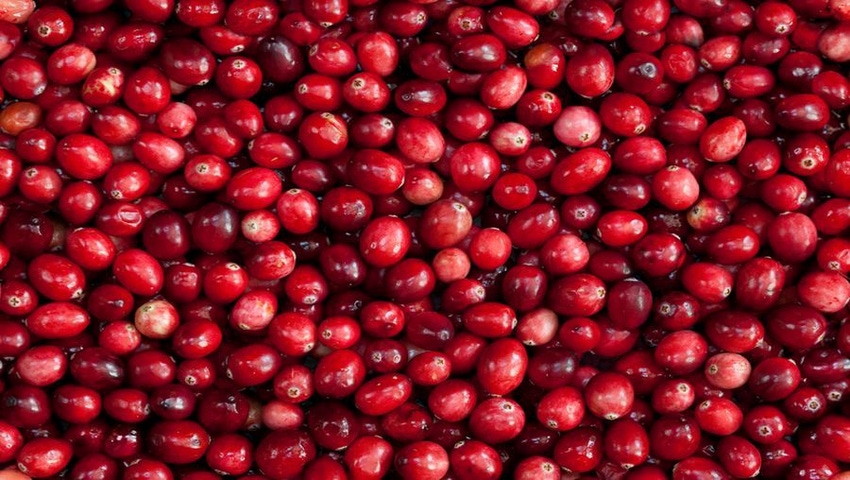The draft decision this past February left unanswered how such cranberry-based products should be classified, but dealt a blow to the "medical device" strategy that had been used in Europe.
July 19, 2016

In February, the European Commission (Commission) dealt a blow to certain cranberry-based products that are marketed as a “medical device." The draft decision by the Commission left unanswered how such products should be classified.
The situation is not ideal for cranberry marketers. While cranberry products sold as a “food supplement" remain on the market, European regulators have rejected claims that were submitted for approval to show the effects of cranberries on health, making it difficult to promote the fruit’s benefits, regulatory experts said.
Cranberries have long been touted as aids in treating bladder or urinary tract infections. However, during evaluations in 2009 through 2011 and in 2013, the European Food Safety Authority (EFSA) rejected various health claims for cranberries, noted Joris Geelen, a former Belgian regulator who is now a partner with Singapore-based Food Compliance International Pte. Ltd.
The developments, he explained, basically closed the road to marketing cranberries in food supplements and left marketers in pursuit of the route of “least resistance."
Enter the “medical device." Marketing a product as a medical device offers one the advantage of being able to make statements that are not subject to a nutrition and health claims regulation adopted by the Commission, explained Nicolas Carbonnelle, a senior associate in Brussels, Belgium, with the law firm Bird & Bird LLP.
“While you can say, ‘This medical device is good for alleviating pain related to urinary tract infection,’" such a claim, if made in connection with a food supplement, would need to be approved by EFSA on the basis of scientific evidence, said Carbonnelle, whose law practice includes advising food and beverage companies.
“They (EFSA) are very strict in approving the claims," the lawyer said in a recent phone interview.
The cranberry industry may blame France for the Commission’s recent decision. At the country’s request, the Commission examined a “group of products whose principal intended action, depending on proanthocyanidins (PAC) present in cranberry … is to prevent or treat cystitis." Cystitis is the medical term for bladder inflammation. According to the draft decision, the latter group of products didn’t meet the definition of a medical device.
In order to qualify as a medical device under a European directive, the article must “not achieve its principal intended action in or on the human body by pharmacological, immunological or metabolic means, but … may be assisted in its function by such means." In determining that the cranberry-based products under review did not meet the definition of a medical device, the Commission explained that the products inhibited “adhesion between P-fimbriated E. Coli and mucous membrane cells in the urinary tract."
The EU’s 28 member states have been asked to comment on the Commission’s draft decision. The decision, if finalized, will force companies marketing cranberry-based products as a medical device to develop another strategy.
(France-based Arkopharma, which according to the publication Clinica sells cranberry-based capsules as medical devices, did not respond to INSIDER’s requests for comment).
In light of the Commission’s decision, sellers of cranberry products face challenges telling a “good marketing story," observed Geelen, a former regulatory expert on botanicals with the federal health department in Belgium.
Gunter Haesaerts, founder and president of cranberry supplement manufacturer Pharmatoka, said in an emailed statement that he expected the decision to apply in the member states during fall 2016.
Companies can “continue to sell their dietary supplements, hopefully leaving out the false claims on the active substance content (cranberry … proanthocyanidins) and sell them without any health claims, after they were forbidden in December 2012," Haesaerts said.
“[And] hopefully, that will enable us to re-establish fair competition in that market," he added.
Carbonnelle said the Commission’s decision could “reopen the Pandora’s box of whether" cranberry-based products could be regulated as “medicinal products." But the lawyer cautioned, “Manufacturers probably don’t want that because … medicinal products are heavily regulated. They require substantial investment to be put on the market, clinical trials, really extensive development, etc., which wouldn’t make sense for a product that is based on cranberries."
Marketing cranberry products as an herbal medicine, Haesaerts said, would necessitate “serious clinical evidence."
“The dietary supplement industry is not used to [spending] the kind of money that is required for significant and flawless clinical studies," he said.
You May Also Like




.png?width=800&auto=webp&quality=80&disable=upscale)